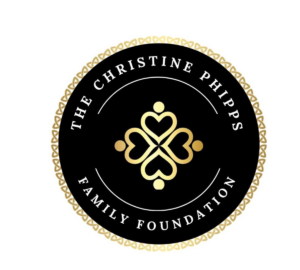By Connie Psaros
Besides his family, my dad is most proud of his service to his country. He served in the Navy during World War II on the U.S.S. Vicksburg as a gunner. When the Japanese signed the Instrument of Surrender aboard the U.S.S. Missouri on September 2, 1945, my dad was able to witness it, though from a distance, from the U.S.S. Vicksburg, one of many ships in Tokyo Bay that historic day.
My siblings and I registered our dad to be included in the National World War II Memorial in Washington, D.C. Along with a donation, we submitted his name, a picture of him in uniform, and a short description of his service. We took a family trip soon after the memorial opened in 2004, and he was so proud to punch his name into the on-site registry, “Tony T.D. Moy,” and see his bio appear. He walked slowly around the whole memorial, taking in all its grandeur. He read every inscription on every column, every brick, finding particular satisfaction with the Pacific Pavilion, a monument dedicated to those who served in the Pacific arena as he did. He was hoping that maybe he’d run into a fellow shipmate, but that did not happen. He was so grateful that he was able to experience the memorial firsthand. We took many pictures. It was a trip to remember.
With all this in mind, I thought it would be a fitting tribute to record his story for NCRA’s Veterans History Project. I went to visit him with my list of questions. My intent was to ask him the questions before we actually went on the record at a later date. I thought this would give him time to formulate his answers and refresh his memory, seeing that the war had ended decades ago.
I was amazed at his recall. He remembered lying about his weight so he could enlist. He was underweight then; not so much now! He remembered boot camp, the food, his fun times on leave, the ship, the endless nights keeping watch, always at the ready for any trouble. He had yellowed news clippings, pictures, his ID, and letters thanking him for his service from the president and other dignitaries.
Things were going well until the saddest memories started to take focus. He remembered his buddies and some who made the ultimate sacrifice. Tears welled up in his eyes. Memories, 70 years old, came flooding back, like it was yesterday. Mom and I were shocked at this very rare show of emotion. He could not continue.
Dad, like so many of his era, had never spoken about the war before my attempt to interview him, and he hasn’t spoken of it since. I could not bear to put him through it. He had suffered enough. He had survived and was living a happy life, thankful for all the blessings that have been bestowed upon him since his time in the service, most notably his marriage, 65 years now, to his dear wife, Josephine, and his six grandchildren.
Dad, now 93, delights in wearing his “glory hat” on outings to restaurants, the grocery store, or doctor appointments. It is one of his prized possessions. It is emblazoned on the front with the words “National WWII Memorial.” It gives him great pleasure when a complete stranger notices his hat, shakes his hand, and thanks him for his service. Or when a stranger notices his hat and patiently steps aside to hold the door for him. The letters he receives from school children around Memorial Day give him so much joy. Sweet gestures, all so appreciated.
Dad returns the favor whenever he sees a veteran, a veteran of any war. Although sometimes a bout of shyness overcomes him, he still manages to approach and inquire. “Are you a vet?” If the answer is yes, they exchange brief histories before he offers the vet one of the hundreds of faded blue stars he and Mom have personally cut out from retired flags. The star is accompanied by a saying that reads: “I am a part of our American Flag. I have flown over a home in the U.S.A. I can no longer fly. The Sun and Winds have caused me to become tattered and torn. Please carry me as a reminder that you are not forgotten.” He always has a star or two in his pocket in case he runs into a fellow patriot.
The war shaped Dad in so many ways. He experienced so much pain in such a short time, a lifetime ago. He is against all war. He dislikes politicians who have no personal experience on the battlefield who rush to send our nation’s treasure into harm’s way. War is not the answer.
I wanted my dad’s personal history to be recorded in the Library of Congress, but it is not to be. And that’s okay. He served with honor, and that is enough. He will be forever linked to the Greatest Generation, and it doesn’t get better than that.
Connie Psaros, RPR, CMRS, is a freelance reporter in Boston, Mass. She can be reached at cpsaros@doriswong.com.





